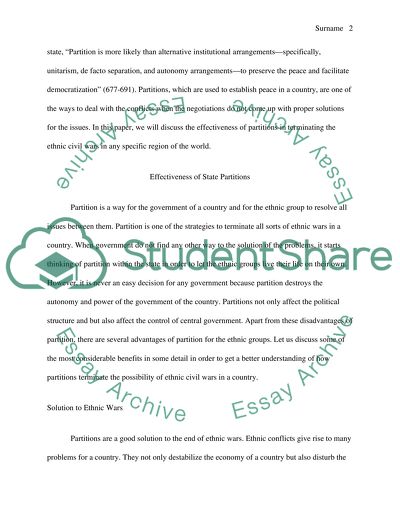Cite this document
(“Partition as a Solution to Ethnic Civil Wars Term Paper”, n.d.)
Retrieved from https://studentshare.org/environmental-studies/1417837-partition-as-a-solution-to-ethnic-civil-wars
Retrieved from https://studentshare.org/environmental-studies/1417837-partition-as-a-solution-to-ethnic-civil-wars
(Partition As a Solution to Ethnic Civil Wars Term Paper)
https://studentshare.org/environmental-studies/1417837-partition-as-a-solution-to-ethnic-civil-wars.
https://studentshare.org/environmental-studies/1417837-partition-as-a-solution-to-ethnic-civil-wars.
“Partition As a Solution to Ethnic Civil Wars Term Paper”, n.d. https://studentshare.org/environmental-studies/1417837-partition-as-a-solution-to-ethnic-civil-wars.


